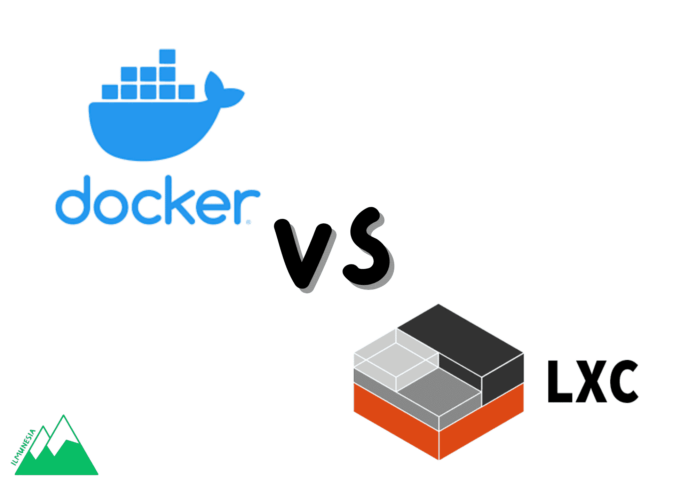Containerization has revolutionized software development, allowing developers to package applications with all their dependencies into isolated units called containers. Docker and LXC are two popular containerization solutions that achieve this in different ways. Understanding the differences between Docker and LXC can help you choose the right tool for your needs, optimizing development workflows, resource utilization, and system performance.
Table of Contents
Understanding Docker

Docker is an open-source platform that provides tools for building, deploying, and managing containerized applications. Docker containers bundle applications and their dependencies into a single, portable unit, ensuring consistent execution across different environments. Here are some key features of Docker:
- Portability: Docker containers run consistently on any system with Docker installed, eliminating compatibility issues.
- Speed and Efficiency: Docker containers share the host system’s kernel, resulting in faster startup times and lower resource consumption compared to virtual machines.
- Isolation: Docker ensures that containers are isolated from each other and the host system, creating a secure environment.
- Image Registry: Docker Hub hosts pre-built Docker images, allowing developers to save time by using existing images.
- Orchestration: Docker integrates with orchestration tools like Docker Swarm and Kubernetes to manage complex deployments involving multiple containers.
Benefits of Docker
- Simplified Development and Testing: Developers can create consistent environments, ensuring applications work seamlessly across different stages of development.
- Faster Deployments: Docker accelerates application deployments with pre-built images and streamlined management.
- Improved Scalability: Scaling applications is easy with Docker, as additional containers can be quickly spun up to handle increased load.
- Microservices Architecture: Docker’s lightweight containers are ideal for building and deploying microservices-based applications.
Must read: Speed Up GitLab CI/CD: 16 Effective Tips
Understanding LXC

LXC (Linux Containers) is another containerization technology that creates isolated environments on Linux systems. Unlike Docker, which uses the host kernel, LXC can operate at the kernel level, offering unique features and use cases.
LXC uses Linux kernel features like namespaces and cgroups to create isolated containers. These containers can house a complete Linux environment, including their own user space and potentially a separate kernel. Key features of LXC include:
- Flexibility: LXC offers granular control over the container environment, including resource allocation, network settings, and the root filesystem.
- Security: LXC containers can achieve higher isolation levels by using separate kernels, beneficial for security-sensitive applications.
- Resource Control: LXC allows precise definition of resource limits for each container, ensuring efficient resource utilization.
Benefits of LXC
- Legacy Application Support: LXC can isolate and run legacy applications requiring specific system configurations.
- High-Performance Computing: LXC’s control and isolation capabilities optimize performance for high-performance computing workloads.
- Security-Focused Environments: LXC’s separate kernel capabilities enhance security, making it suitable for deployments requiring maximum isolation.
Docker vs. LXC: Performance Comparison
Choosing between Docker and LXC often depends on whether you prioritize speed and simplicity or control and isolation.
Resource Usage and Efficiency
- Docker: Shares the host kernel, leading to faster startup times and lower resource consumption, ideal for rapid deployments and scalability.
- LXC: Can be more resource-intensive due to separate kernels but offers fine-grained resource control, beneficial for specific workloads.
Speed
- Docker: Faster startup times due to its lightweight nature, perfect for frequent deployments and scaling.
- LXC: Longer boot times for containers with separate kernels, more noticeable in scenarios requiring frequent restarts.
Docker vs. LXC: Ease of Use
The ease of use of Docker and LXC influences their adoption and operational efficiency.
Installation and Setup
- Docker: Simple installation packages for various operating systems, with Docker Compose simplifying multi-container orchestration.
- LXC: Available in Linux distributions’ package repositories but requires more manual configuration, especially for networking and storage.
Configuration and Management
- Docker: Intuitive CLI and GUI tools like Docker Desktop for managing containers and images, with Docker Compose for defining multi-container applications.
- LXC: Managed using the lxc command-line tool, offering powerful customization but requiring more manual intervention.
User-friendly Interfaces and Tools
- Docker: Rich ecosystem of tools, including Docker Hub, Docker Swarm, and Docker Desktop.
- LXC: Primarily managed through the lxc command-line tool, integrating well with Linux system utilities.
Documentation and Community Support
- Docker: Extensive documentation and a large, active community offering resources, tutorials, and forums.
- LXC: Smaller community with decent documentation, though support resources may be more limited.
Docker vs. LXC: Isolation and Security
Isolation and security are critical considerations for containerization technologies.
Isolation Mechanisms
- Docker: Relies on namespaces and cgroups, sharing the host kernel, which could expose all containers if the host kernel is compromised.
- LXC: Offers additional isolation with separate kernels, providing a stronger barrier between containers and the host system.
Security Vulnerabilities and Concerns
- Docker: Popularity makes it a bigger target for attackers, with potential security misconfigurations creating vulnerabilities.
- LXC: Smaller user base but still requires adherence to security best practices.
Docker vs. LXC: Ecosystem and Community Support
The ecosystem and community support surrounding Docker and LXC influence their adoption and usability.
Ecosystem and Tooling
- Docker: Robust ecosystem with Docker Hub, Docker Compose, and orchestration tools like Kubernetes.
- LXC: Integrates well with the Linux ecosystem but lacks extensive tooling and integration options.
Pre-built Images and Plugins
- Docker: Hosts thousands of pre-built images on Docker Hub and supports a wide range of plugins.
- LXC: Limited availability of pre-built images and plugins, requiring manual configuration.
Community Support
- Docker: Large and active global community with extensive online resources and support.
- LXC: Dedicated but smaller community with more limited support resources.
Conclusion
Docker and LXC are both powerful containerization solutions, each with its unique strengths. Docker excels in ease of use, portability, and speed, making it ideal for rapid deployments and microservices architectures. LXC offers greater control and isolation, beneficial for legacy applications, high-performance computing, and security-focused environments. Choosing the right solution depends on your specific needs and priorities, whether it’s rapid scalability or fine-grained control over your containerized environments.

